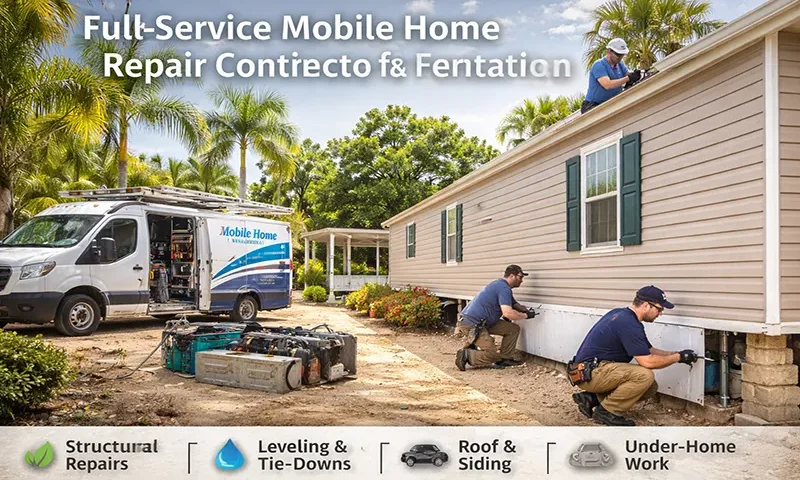Full-Service Mobile Home Repair Contractors in Central Florida
Mobile homes in Central Florida require professional maintenance to remain safe, level, and storm-ready. From foundation leveling to tie-downs and skirting, a complete solution is essential. Florida Truly Level Mobile Home Service offers full-service mobile home repair contractors in Central Florida, providing comprehensive solutions for manufactured home owners.
📞 Call Today: 1 (689) 340-5795
📍 1757 S Village Dr, Deltona, FL 32725
Comprehensive Mobile Home Repair Services
Our team specializes in a wide range of mobile home services, ensuring your home is protected from structural, environmental, and storm-related risks. Services include:
- Central Florida manufactured home leveling specialists – leveling and foundation repair
- Mobile home releveling and foundation repair in Central FL – correcting uneven floors and structural shifts
- HUD-compliant tie-down and retrofit services across Central Florida – securing your home for storms and compliance
- Storm-ready hurricane anchoring for Florida manufactured homes – protecting your home from hurricane-force winds
We … READ MORE ...















